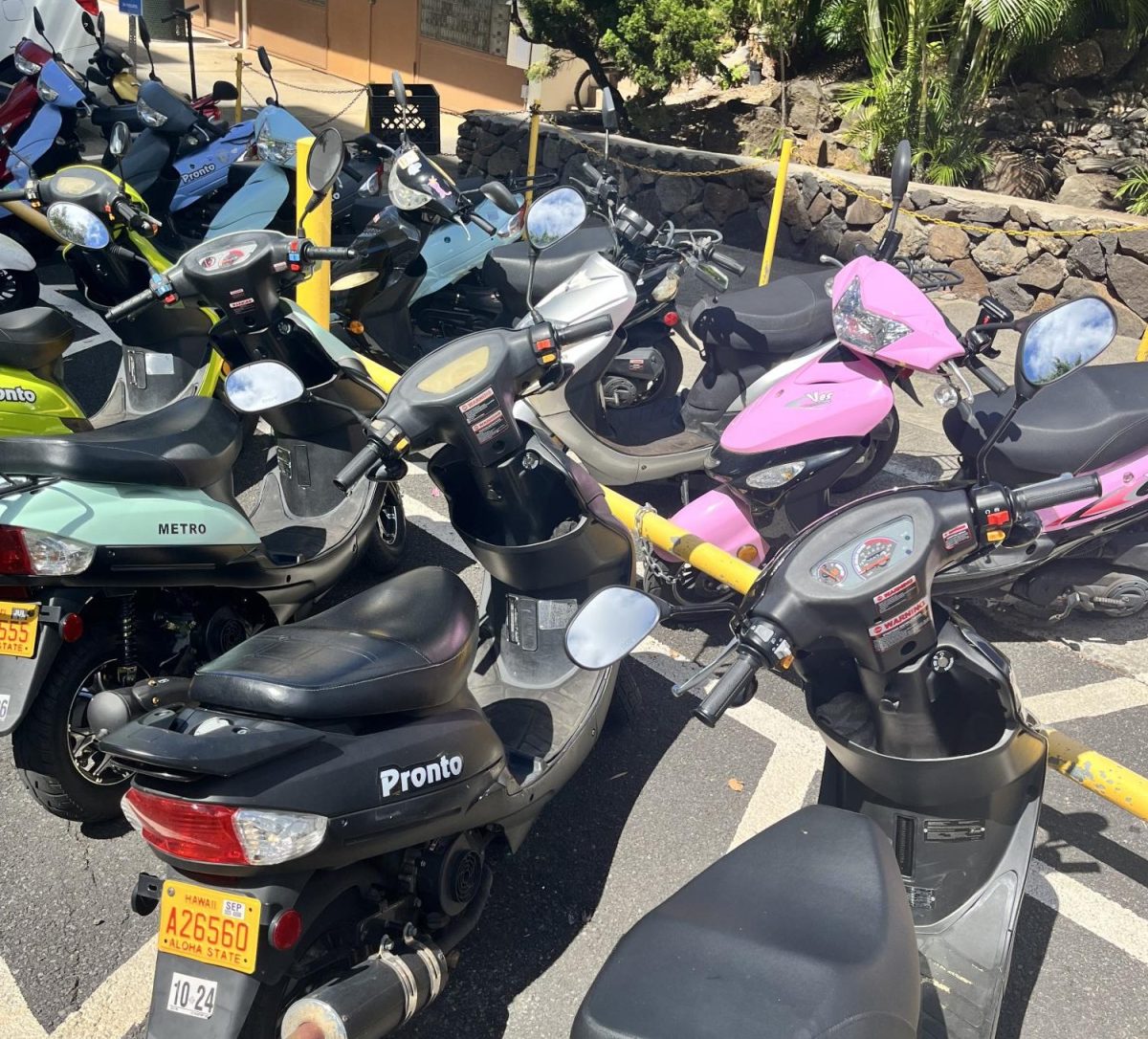According to the Hawaiʻi Department of Transportation, over 1,000 people died in moped and motorcycle crashes in the last 10 years, and many of those drivers were not wearing helmets.
On June 25, 2026, a new Hawaiʻi law will take effect requiring all moped drivers to wear helmets. It also says that anyone under the age of 16 is no longer allowed to drive a moped. This law, known as Act 222, was made to help keep people safe while riding mopeds. But many Chaminade students disagree with the new law, which was announced in late September.
“A helmet only does so much. I mean, you could still end up dead with a helmet on,” said Jayden Hopkins, a Chaminade freshman who has ridden a moped since August. “I think that’s where I would draw the line. Like why are you going to ticket me for making my own decisions about how I ride my moped?”
Hopkins believes that it should be up to each person to decide if they want to wear a helmet or not.
A new law in Hawaiʻi is working to make moped riding safer. On June 25, 2025, Senate Bill 30 became Act 222, which now requires all moped drivers to wear helmets and bans anyone under 16 from driving a moped. Senator Stanley Chang introduced the law because of the high number of accidents and deaths involving mopeds in Hawaiʻi. Chang said in a press release that this new rule is a “commonsense” way to protect people and help prevent serious brain injuries or deaths in crashes. Now, anyone caught breaking this law can get a ticket, which shows how serious the state is about safety, Change said in the release.
Hopkins’ opinion shows that some riders feel the law takes away their freedom. Others believe this law is a great idea and should have been enforced earlier.
“I think every time someone buys a moped, it should be strictly required that they also buy a helmet,” said Adrianna Nichols, a Chaminade senior who has driven a moped for two years but doesn’t wear a helmet.
She also said that she already takes safety seriously. Last year, around 10 p.m. a driver in a car was going the wrong way on a one-way street and she tried to swerve out of the way. Because it had rained earlier that day, the road was slippery, and when she swerved the moped lost traction, spun out and rolled under it. The people in the car and the surrounding houses came to help. Firefighters helped her into the ambulance, and she went to the emergency room.
There, Nichols discovered from the accident her knee was skinned down to the bone, and she had scratches on both legs and road rash on her foot and left arm. They put stitches in her knee that were removed about 2 weeks later. They released her from the hospital around 3 a.m. and for about 2 weeks she was on crutches to aid in walking around.
Since the accident, Nichols said she drives more cautiously.
“Yes, it did affect me, but [now] I never go over 25 miles per hour, and I don’t ride when it’s raining,” she said.
For Nichols, the law just makes sure everyone stays as safe as she does.
Alyssa Schuetze a junior at Chaminade, had a close call on her moped, which made her think more about safety. When she was on her moped in the rain, she slammed on her brakes too hard, and her moped slid 10 feet. She nearly rear-ended a car.
“I caught myself when I fell, so I didn’t get hurt,” said Schuetze, who has ridden a moped for two years. “But if I had fallen differently, the helmet definitely would have helped.”
Her story shows how even experienced riders can end up in dangerous situations. Even though she sees why the law was made, she also thinks it should be enforced gently.
“Maybe a warning instead of a ticket would be better, in my opinion,” Schuetze said.
Overall, people have different opinions about the new law. Some think it’s a smart move that will help prevent serious injuries or deaths. Others believe people should be able to choose for themselves whether to wear a helmet or not.
While helmets can’t guarantee safety in every accident, they can help reduce the chances of getting seriously injured. Laws like this are made to protect people but they can also cause debate when they affect people’s personal freedom.
